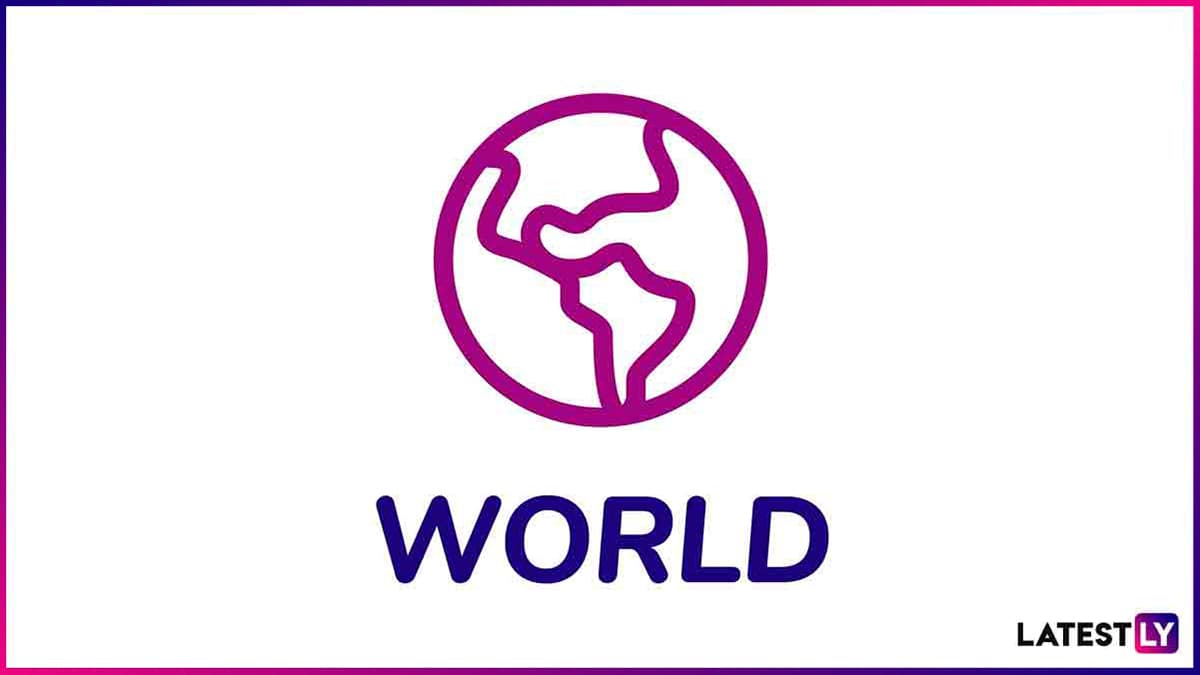Mexico City, Jun 26 (AP) Afro-descendant communities along Mexico’s Pacific coast are calling on President Claudia Sheinbaum’s administration for an immediate response a week after Hurricane Erick, saying poorer and predominantly Black communities have been disproportionately impacted by hurricanes over the past three years. Hurricane Erick rapidly strengthened over the Pacific, making landfall as a Category 3 storm in the Costa Chica’s coastal mountains south of Acapulco. It knocked out power for nearly 300,000 people, triggered landslides and flooding and killed a 1-year-old boy, who drowned in a swollen river. Also Read | Gwada Negative: New Blood Group Discovered by Scientists in French Woman From Guadeloupe, Know All About the World’s 48th Blood Group System. In rural swathes of the coastal states of Oaxaca and Guerrero, rights organisations reported that Afro-descendant communities — comprising more than 80 per cent of the population — were devastated by the hurricane and have received little aid from Mexico’s government. Photos and videos of towns in the region following the hurricane show collapsed tin roof houses, fields of uprooted trees and flooded villages. The destruction has driven these communities to appeal for help and aid supplies on social media, highlighting the hurricane’s aftermath as further evidence of the historic neglect faced by ethnic minorities in Mexico and the disproportionate impact of the climate crisis on some of the most vulnerable communities. Also Read | SCO Summit 2025: Defence Minister Rajnath Singh Slams Pakistan at SCO China Meeting, Says ‘Those Who Sponsor Terror Must Bear Consequences, No Place for Double Standards’. “This devastation is a direct consequence not only of climate change but also of the structural, institutional and systemic racism that has kept the Afro-Mexican people marginalised from development,” wrote MUAFRO, an Afro-Mexican women’s collective in the coastal states, in a post calling for aid. Mexico’s 2.5 million Afro-Mexican people, an ethnic group officially recognised by Mexican census authorities, have long endured significant social disparities. The communities were established during the Spanish colonization of Mexico in the 1500’s, when enslaved Africans brought to Latin America later built settlements in coastal regions. The communities face poverty rates more than 20 per cent higher than the average Mexican, according to Mexico’s 2020 census. They also face weak infrastructure, less access to formal employment, education and health coverage. A significant proportion of these communities are situated in states highly vulnerable to hurricanes, such as Guerrero, Oaxaca and Veracruz. They also have few resources to recover from extreme climate events that have increasingly ravaged the Pacific coast. Scientists have connected such rapidly intensifying hurricanes to climate change because warmer waters in the Pacific act as fuel for the storms. Afro-Mexican groups pointed out that those same rural coastal communities winding down Mexico’s Pacific coast were still recovering from weather disasters like Hurricane John in 2024 and Hurricane Otis in 2023, which thrust the resort city of Acapulco and surrounding areas into chaos. When images of the most recent hurricane fallout began to emerge, the immediate thought for poet and human rights activist Aleida Violeta was: “Not again.” Violeta moved from her small town of Cuajinicuilapa to Mexico City in 2023 after Hurricane Otis ravaged her home. She went to the capital to seek medical attention for her sick mother. Last year, she said Hurricane John fuelled flooding in the town, dealing a double blow to her relatives still living there. The damage she witnessed after Hurricane Erick, however, was “unprecedented”, she said. Nearly a week later, roofs remained blown off homes and electricity and water still hadn’t been restored. The community’s poorest residents are struggling to access basic necessities like food, water and dry clothes. Officials from Mexico’s Civil Defence, the government entity that usually responds to natural disasters, still hadn’t arrived, she said. “It’s total devastation,” she said. “These towns have been totally and historically abandoned. There is no infrastructure and people survive day-to-day.” Violeta was among many to take to social media this week to call for both donations and action by the Mexican government to aid Afro-Mexicans in the region. She was joined by groups like MUAFRO, which published a demand for President Sheinbaum and the governors of the two states to declare a disaster in the affected areas. They also called for temporary housing and employment opportunities for locals, citing the severe impact hurricanes have had on farmers and fishers. The groups also called for local and federal governments to develop short-, medium-, and long-term plans for how to address future disasters. (AP) (This is an unedited and auto-generated story from Syndicated News feed, LatestLY Staff may not have modified or edited the content body)
